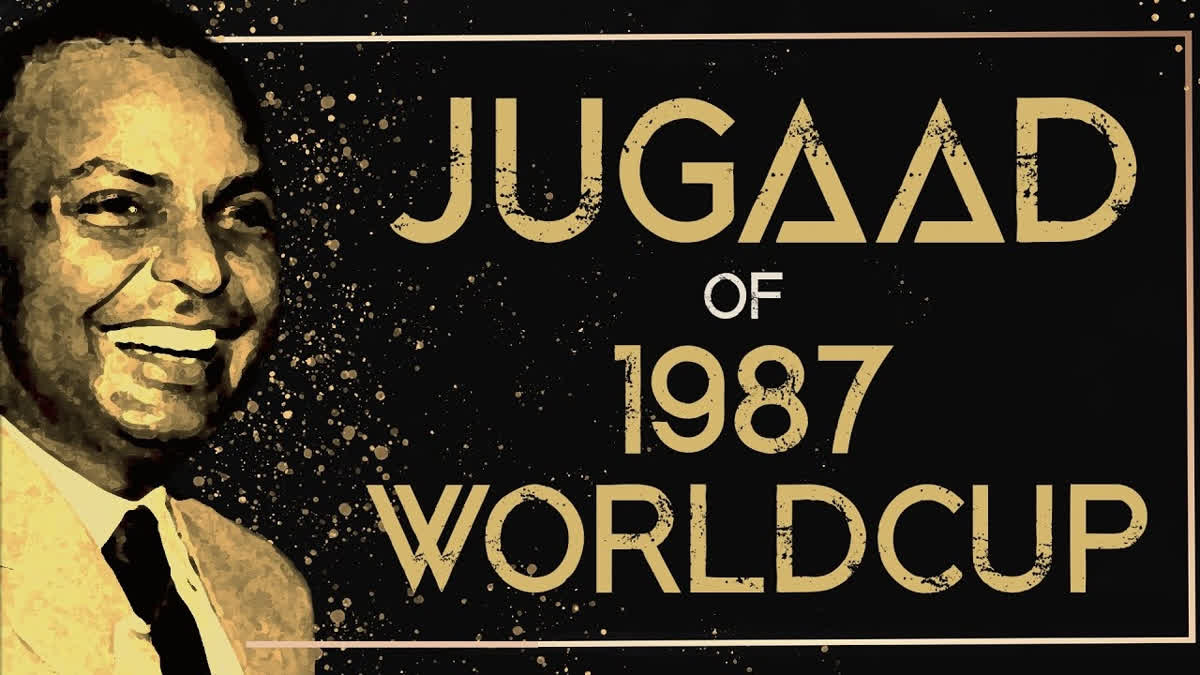Hyderabad: The Indian cricket team scripted history by reaching the final of the 1983 Cricket World Cup which was eventually won by the Kapil Dev-led side in Lords, England, an incident took place in the home country that was going to change the future of the sport. NKP Salve, then the president of the Board of Control for Cricket in India (BCCI), had requested a few extra passes for his fellow officials to watch the all-important final where the Indian cricket team was going stunned the world beating the mighty West Indies side-led by Sir Vivian Richards. However, the England and Wales Cricket Board (ECB) refused NKP Salve's request and left him fuming as BCCI president did not forget the insult.
Salve realized that cricket’s power was concentrated in England and other countries like Australia or New Zealand which had little say in the game’s administration. Determined to change this, he saw an opportunity—why should the World Cup be played in England every time? Why couldn’t India, a rising force in cricket and reigning champions, host it?
A Bold Plan Takes Shape
Salve exchanged his thoughts and full-proof plan with then Pakistan Cricket Board (PCB) Chairman Nur Khan, who immediately displayed his support for the idea. The two nations, who were rising countries in cricket, came together with a proposal to host the next World Cup i.e. 1987 ODI Cricket World Cup to the subcontinent. However, convincing the International Cricket Council (ICC) and its committee whose members were majorly from England was not going to be a very tough task.
Since its inception in 1975, which means all three ICC tournaments including the 1975, 1979 and 1983 World Cup were hosted by England, mainly because no other country had the financial strength or infrastructure to organize such mega event. The England and Wales Cricket Board (ECB) was confident that no one could challenge their authority.
But Salve did. he along with BCCI administrators like Jagmohan Dalmiya and IS Bindra, had a strategy. They understood that money could be a powerful tool in winning their votes to bring the tournament home because many cricket boards were highly dependent on financial assistance from the ICC which the governing body gives from its annual revenue.
Winning the Bid
During the ICC meeting, the BCCI and PCB representatives made a bold offer, promising the Associate Member nations and Full Member nations of the ICC five times and four times the financial benefits that England had been providing earlier. To this eye-opening offer, the ECB was left unspoken and had no counteroffer. When the voting took place, India and Pakistan won by 16 votes to 12 and for the first time in history, the Cricket World Cup was set to be held outside England. But, hang on. There's another issue that India had to tackle back home.
The Funding Crisis
Winning the bid was one thing, but organizing the World Cup in India, the country which had never hosted an event at this level and hence it was an even bigger challenge. The hosting cost of the tournament was estimated at around Rs 32 crore. Since India was hosting most of the matches, it had to cover two-thirds of the expenses.
The plan was originally to generate revenue through sponsorships and television rights, but those funds were going to come in after the tournament and the BCCI needed immediate financial backing, and that’s where the real struggle began.
Initially, Salve turned to then-Prime Minister Indira Gandhi, who backed the idea and convinced industrialist Dhirubhai Ambani, the owner of Reliance Industries, to fund the tournament. But just when it seemed like things were falling into place, the tragedy struck, Indira Gandhi was assassinated and Rajiv Gandhi took over as Prime Minister in 1984.
Rajiv Gandhi’s government wasn't friendly with the Ambanis. When the Finance Ministry, under VP Singh, came to know that Salve and Ambani were planning such an event, they started closely monitoring Reliance’s financial dealings, ultimately putting an end to funding from Reliance group for the World Cup.
A Desperate Search for Sponsors
